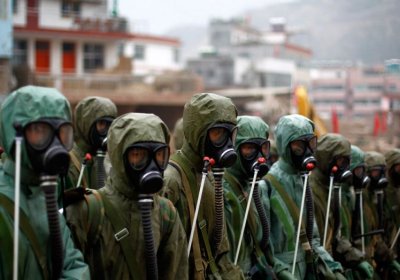Jim Green
What's the best mix of electricity supply sources for Australia in the context of growing scientific and public concern about climate change? Energy efficiency and conservation provide the first part of the answer — they can provide large, quick, cheap greenhouse emissions reductions.
There's every likelihood that radioactive by-products of Australian uranium have spewed into the atmosphere from the nuclear reactor plant at Fukushima in Japan.
How have Australian scientists handled the difficult task of keeping us informed about the unfolding nuclear disaster in Japan? Only a few Australian scientists have featured repeatedly in the media.
The good news is that we don't know for sure that exported Australian uranium has been used in nuclear weapons programs since the late 1940s. The bad news is that we don't know it hasn't. The regime designed to attempt to prevent
- Previous page
- Page 3
- Next page





